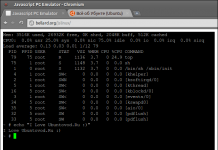The Middle East and Africa (MEA) region is aggressively pursuing artificial intelligence (AI) integration, yet a widening gap between ambition and practical readiness threatens to limit the full economic potential of this transformation. A new study by the IBM Institute for Business Value reveals that while 77% of MEA data leaders prioritize investments to accelerate AI capabilities, only 25% express confidence that their existing data infrastructure can reliably support new AI-driven revenue streams. This disconnect highlights a critical imbalance: organizations are rushing to deploy AI before fully addressing the underlying data challenges.
The Growing Data Skills Gap
One of the most significant barriers to AI success in MEA is the escalating shortage of advanced data skills. The study found that 54% of respondents now cite this as their top challenge, nearly doubling from 28% in 2023. This rapid increase suggests the talent gap is widening faster than anticipated, potentially hindering the operationalization of AI initiatives and limiting competitive advantages. The issue isn’t simply a lack of personnel, but a shortage of individuals equipped with the specialized expertise required to manage, refine, and leverage data effectively for AI applications.
Data Strategy Integration and Unstructured Data Challenges
Despite readiness concerns, integration between data strategy and broader technology roadmaps has increased. Three-quarters (76%) of MEA Chief Data Officers now report that their data strategy is directly aligned with infrastructure investments, up from 55% in 2023. However, only 27% are confident in their organization’s ability to extract value from unstructured data, a critical component for many AI applications. This suggests that while strategic alignment is improving, the practical capacity to handle complex, real-world data remains limited.
Talent Acquisition and Data Democratization
The struggle to recruit skilled data professionals is intensifying. 79% of surveyed MEA leaders are finding it difficult to fill key data roles, with only 51% believing recruitment efforts are delivering the necessary skills and experience, a decline from 66% in 2024. Simultaneously, data democratization is gaining traction, with 72% of MEA data chiefs stating that broader employee access to data helps organizations move faster. However, only 28% strongly agree that they can clearly convey how data facilitates business results, and just 27% have established clear metrics to measure the value of data-driven outcomes. This suggests that while access to data is expanding, the ability to translate it into tangible business value remains a challenge.
Bridging the Gap: AI-to-Data Approach
To address these challenges, 75% of MEA Chief Data Officers are adopting an “AI-to-data” approach rather than centralizing data, and 68% are actively developing diverse datasets to train AI agents. This indicates a shift toward leveraging AI to improve data quality and accessibility rather than relying on traditional data management methods. However, this approach requires significant investment in AI infrastructure and expertise, which many organizations may lack.
Global Trends and Implications
The IBM study’s global findings reinforce the urgency of addressing data readiness. Worldwide, 81% of Chief Data Officers prioritize AI-accelerating investments, with 13% of IT budgets now allocated to data strategy, up from just 4% in 2023. Yet, only 26% globally express confidence that their data capabilities can support AI-enabled revenue streams. This global disconnect underscores the systemic challenges organizations face in translating AI ambition into practical results.
The MEA region’s aggressive pursuit of AI, coupled with its widening data readiness gap, presents both opportunities and risks. Organizations that prioritize data quality, invest in talent development, and adopt innovative AI-to-data approaches will be best positioned to capture the full economic potential of this transformation. Those that fail to address these challenges risk falling behind in an increasingly competitive landscape







































